Editor’s Note: This is the eleventh chapter of William the Conqueror, by Jacob Abbot (published 1877).
XI. Prince Robert’s Rebellion
Ambitious men, who devote their time and attention, through all the early years of life, to their personal and political aggrandizement, have little time to appropriate to the government and education of their children, and their later years are often embittered by the dissipation and vice, or by the unreasonable exactions of their sons. At least it was so in William’s case. By the time that his public enemies were subdued, and he found himself undisputed master both of his kingdom and his duchy, his peace and happiness were destroyed, and the tranquility of his whole realm was disturbed by a terrible family quarrel.
The name of his oldest son was Robert. He was fourteen years old when his father set off on his invasion of England. At that time he was a sort of spoiled child, having been his mother’s favorite, and, as such, always greatly indulged by her. When William went away, it will be recollected that he appointed Matilda regent, to govern Normandy during his absence. This boy was also named in the regency, so that he was nominally associated with his mother, and he considered himself, doubtless, as the more important personage of the two. In a word, while William was engaged in England, prosecuting his conquests there, Robert was growing up in Normandy a vain, self-conceited, and ungovernable young man.
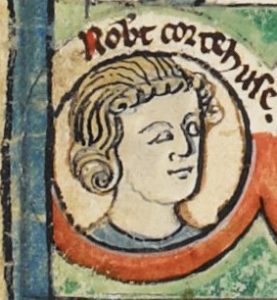
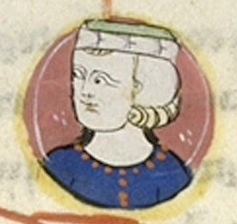
His father, in going back and forth between England and Normandy, often came into conflict with his son, as usual in such cases. In those contests Matilda took sides with the son. William’s second son, whose name was William Rufus, was jealous of his older brother, and was often provoked by the overbearing and imperious spirit which Robert displayed. William Rufus thus naturally adhered to the father’s part in the family feud. William Rufus was as rough and turbulent in spirit as Robert, but he had not been so indulged. He possessed, therefore, more self-control; he knew very well how to suppress his propensities, and conceal the unfavorable aspects of his character when in the presence of his father.
There was a third brother, named Henry. He was of a more quiet and inoffensive character, and avoided taking an active part in the quarrel, except so far as William Rufus led him on. He was William Rufus’s friend and companion, and, as such, Robert considered him as his enemy. All, in fact, except Matilda, were against Robert, who looked down, in a haughty and domineering manner—as the oldest son and heir is very apt to do in rich and powerful families—upon the comparative insignificance of his younger brethren. The king, instead of restraining this imperious spirit in his son, as he might, perhaps, have done by a considerate and kind, and, at the same time, decisive exercise of authority, teased and tormented him by sarcasms and petty vexations. Among other instances of this, he gave him the nickname of Short Boots, because he was of inferior stature. As Robert was, however, at this time of full age, he was stung to the quick at having such a stigma attached to him by his father, and his bosom burned with secret sentiments of resentment and revenge.
He had, besides, other causes of complaint against his father, more serious still. When he was a very young child, his father, according to the custom of the times, had espoused him to the daughter and heiress of a neighboring earl, a child like himself. Her name was Margaret. The earldom which this little Margaret was to inherit was Maine. It was on the frontiers of Normandy, and it was a rich and valuable possession. It was a part of the stipulation of the marriage contract that the young bride’s domain was to be delivered to the father of the bridegroom, to be held by him until the bridegroom should become of age, and the marriage should be fully consummated. In fact, the getting possession of this rich inheritance, with a prospect of holding it so many years, was very probably the principal end which William had in view in contracting for a matrimonial union so very premature.
If this was, in reality, William’s plan, it resulted, in the end, even more favorably than he had anticipated; for the little heiress died a short time after her inheritance was put into the possession of her father-in-law. There was nobody to demand a restoration of it, and so William continued to hold it until his son, the bridegroom, became of age. Robert then demanded it, contending that it was justly his. William refused to surrender it. He maintained that what had passed between his son in his infancy, and the little Margaret, was not a marriage, but only a betrothment—a contract for a future marriage, which was to take place when the parties were of age—that, since Margaret’s death prevented the consummation of the union, Robert was never her husband, and could not, consequently, acquire the rights of a husband. The lands, therefore, ought manifestly, he said, to remain in the hands of her guardian, and whatever rights any other persons might have, claiming to succeed Margaret as her natural heirs, it was plain that his son could have no title whatever.
However satisfactory this reasoning might be to the mind of William, Robert was only exasperated by it. He looked upon the case as one of extreme injustice and oppression on the part of his father, who, not content, he said, with his own enormous possessions, must add to them by robbing his own son. In this opinion Robert’s mother, Matilda, agreed with him. As for William Rufus and Henry, they paid little attention to the argument, but were pleased with the result of it, and highly enjoyed their brother’s vexation and chagrin in not being able to get possession of his earldom.
There was another very serious subject of dispute between Robert and his father. It has already been stated, that when the duke set out on his expedition for the invasion of England, he left Matilda and Robert together in charge of the duchy. At the commencement of the period of his absence Robert was very young, and the actual power rested mainly in his mother’s hands. As he grew older, however, he began to exercise an increasing influence and control. In fact, as he was himself ambitious and aspiring, and his mother indulgent, the power passed very rapidly into his hands. It was eight years from the time that William left Normandy before his power was so far settled and established in England that he could again take the affairs of his original realm into his hands. He had left Robert, at that time, a mere boy of fourteen, who, though rude and turbulent in character, was still politically powerless. He found him, on his return, a man of twenty-two, ruder and more turbulent than before, and in the full possession of political power. This power, too, he found him very unwilling to surrender.
In fact, when William came to receive back the province of Normandy again, Robert almost refused to surrender it. He said that his father had always promised him the duchy of Normandy as his domain so soon as he should become of age, and he claimed now the fulfillment of this promise. Besides, he said that, now that his father was King of England, his former realm was of no consequence to him. It did not add sensibly to his influence or his power, and he might, therefore, without suffering any sensible loss himself, grant it to his son. William, on his part, did not acknowledge the force of either of these arguments. He would not admit that he had ever promised Normandy to his son; and as to voluntarily relinquishing any part of his possessions, he had no faith in the policy of a man’s giving up his power or his property to his children until they were justly entitled to inherit it by his death; at any rate, he should not do it. He had no idea, as he expressed it, “of putting off his clothes before he was going to bed.”
The irritation and ill-will which these dissensions produced grew deeper and more inveterate every day, though the disagreement had been thus far a private and domestic dispute, confined, in its influence, to the king’s immediate household. An occasion, however, now occurred, on which the private family feud broke out into an open public quarrel. The circumstances were these:
King William had a castle in Normandy, at a place called L’Aigle. He was spending some time there, in the year 1076, with his court and family. One day William Rufus and Henry were in one of the upper apartments of the castle, playing with dice, and amusing themselves, in company with other young men of the court, in various ways. There was a window in the apartment leading out upon a balcony, from which one might look down upon the court-yard of the castle below. Robert was in this court-yard with some of his companions, walking there in an irritated state of mind, which had been produced by some previous disputes with his brothers. William Rufus looked down from the balcony and saw him, and by way, perhaps, of quenching his anger, poured some water down upon him. The deed changed the suppressed and silent irritation in Robert’s heart to a perfect frenzy of rage and revenge. He drew his sword and sprang to the stair-case. He uttered loud and terrible imprecations as he went, declaring that he would kill the author of such an insult, even if he was his brother. The court-yard was, of course, immediately filled with shouts and exclamations of alarm, and every body pressed forward toward the room from which the water had been thrown, some to witness, and some to prevent the affray.
The king himself, who happened to be in that part of the castle at the time, was one of the number. He reached the apartment just in time to interpose between his sons, and prevent the commission of the awful crime of fratricide. As it was, he found it extremely difficult to part the ferocious combatants. It required all his paternal authority, and not a little actual force, to arrest the affray. He succeeded, however, at length, with the help of the by-standers, in parting his sons, and Robert, out of breath, and pale with impotent rage, was led away.
Robert considered his father as taking sides against him in this quarrel, and he declared that he could not, and would not, endure such treatment any longer. He found some sympathy in the conversation of his mother, to whom he went immediately with bitter complainings. She tried to soothe and quiet his wounded spirit, but he would not be pacified. He spent the afternoon and evening in organizing a party of wild and desperate young men from among the nobles of the court, with a view of raising a rebellion against his father, and getting possession of Normandy by force. They kept their designs profoundly secret, but prepared to leave L’Aigle that night, to go and seize Rouen, the capital, which they hoped to surprise into a surrender. Accordingly, in the middle of the night, the desperate troop mounted their horses and rode away. In the morning the king found that they were gone, and he sent an armed force after them. Their plan of surprising Rouen failed. The king’s detachment overtook them, and, after a sharp contest, succeeded in capturing a few of the rebels, though Robert himself, accompanied by some of the more desperate of his followers, escaped over the frontier into a neighboring province, where he sought refuge in the castle of one of his father’s enemies.
This result, as might have been expected, filled the mind of Matilda with anxiety and distress. A civil war between her husband and her son was now inevitable; and while every consideration of prudence and of duty required her to espouse the father’s cause, her maternal love, a principle stronger far, in most cases, than prudence and duty combined, drew her irresistibly toward her son. Robert collected around him all the discontented and desperate spirits of the realm, and for a long time continued to make his father infinite trouble. Matilda, while she forbore to advocate his cause openly in the presence of the king, kept up a secret communication with him. She sent him information and advice from time to time, and sometimes supplies, and was thus, technically, guilty of a great crime—the crime of maintaining a treasonable correspondence with a rebel. In a moral point of view, however, her conduct may have been entirely right; at any rate, its influence was very salutary, for she did all in her power to restrain both the father and the son; and by the influence which she thus exerted, she doubtless mitigated very much the fierceness of the struggle.
Of course, the advantage, in such a civil war as this, would be wholly on the side of the sovereign. William had all the power and resources of the kingdom in his own hands—the army, the towns, the castles, the treasures. Robert had a troop of wild, desperate, and unmanageable outlaws, without authority, without money, without a sense of justice on their side. He gradually became satisfied that the contest was vain. In proportion as the activity of the hostilities diminished, Matilda became more and more open in her efforts to restrain it, and to allay the animosity on either side. She succeeded, finally, in inducing Robert to lay down his arms, and then brought about an interview between the parties, in hopes of a peaceful settlement of the quarrel.
It appeared very soon, however, at this interview, that there was no hope of any thing like a real and cordial reconciliation. Though both the father and son had become weary of the unnatural war which they had waged against each other, yet the ambitious and selfish desires on both sides, in which the contest had originated, remained unchanged. Robert began the conference by imperiously demanding of his father the fulfillment of his promise to give him the government of Normandy. His father replied by reproaching him with his unnatural and wicked rebellion, and warned him of the danger he incurred, in imitating the example of Absalom, of sharing that wretched rebel’s fate. Robert rejoined that he did not come to meet his father for the sake of hearing a sermon preached. He had had enough of sermons, he said, when he was a boy, studying grammar. He wanted his father to do him justice, not preach to him. The king said that he should never divide his dominions, while he lived, with any one; and added, notwithstanding what Robert had contemptuously said about sermons, that the Scripture declared that a house divided against itself could not stand. He then proceeded to reproach and incriminate the prince in the severest manner for his disloyalty as a subject, and his undutifulness and ingratitude as a son. It was intolerable, he said, that a son should become the rival and bitterest enemy of his father, when it was to him that he owed, not merely all that he enjoyed, but his very existence itself.
These reproaches were probably uttered in an imperious and angry manner, and with that spirit of denunciation which only irritates the accused and arouses his resentment, instead of awakening feelings of penitence and contrition. At any rate, the thought of his filial ingratitude, as his father presented it, produced no relenting in Robert’s mind. He abruptly terminated the interview, and went out of his father’s presence in a rage.
In spite of all his mother’s exertions and entreaties, he resolved to leave the country once more. He said he would rather be an exile, and wander homeless in foreign lands, than to remain in his father’s court, and be treated in so unjust and ignominious a manner, by one who was bound by the strongest possible obligations to be his best and truest friend. Matilda could not induce him to change this determination; and, accordingly, taking with him a few of the most desperate and dissolute of his companions, he went northward, crossed the frontier, and sought refuge in Flanders. Flanders, it will be recollected, was Matilda’s native land. Her brother was the Earl of Flanders at this time. The earl received young Robert very cordially, both for his sister’s sake, and also, probably, in some degree, as a means of petty hostility against King William, his powerful neighbor, whose glory and good fortune he envied.
Robert had not the means or resources necessary for renewing an open war with his father, but his disposition to do this was as strong as ever, and he began immediately to open secret communications and correspondence with all the nobles and barons in Normandy whom he thought disposed to espouse his cause. He succeeded in inducing them to make secret contributions of funds to supply his pecuniary wants, of course promising to repay them with ample grants and rewards so soon as he should obtain his rights. He maintained similar communications, too, with Matilda, though she kept them very profoundly secret from her husband.
Robert had other friends besides those whom he found thus furtively in Normandy. The King of France himself was much pleased at the breaking out of this terrible feud in the family of his neighbor, who, from being his dependent and vassal, had become, by his conquest of England, his great competitor and rival in the estimation of mankind. Philip was disposed to rejoice at any occurrences which tended to tarnish William’s glory, or which threatened a division and diminution of his power. He directed his agents, therefore, both in Normandy and in Flanders, to encourage and promote the dissension by every means in their power. He took great care not to commit himself by any open and positive promises of aid, and yet still he contrived, by a thousand indirect means, to encourage Robert to expect it. Thus the mischief was widened and extended, while yet nothing effectual was done toward organizing an insurrection. In fact, Robert had neither the means nor the mental capacity necessary for maturing and carrying into effect any actual plan of rebellion. In the mean time, months passed away, and as nothing effectual was done, Robert’s adherents in Normandy became gradually discouraged. They ceased their contributions, and gradually forgot their absent and incompetent leader. Robert spent his time in dissipation and vice, squandering in feasts and in the company of abandoned men and women the means which his followers sent him to enable him to prepare for the war; and when, at last, these supplies failed him, he would have been reduced gradually to great distress and destitution, were it not that one faithful and devoted friend still adhered to him. That friend was his mother.
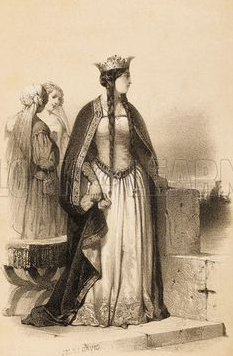
Matilda knew very well that whatever she did for her absent son must be done in the most clandestine manner, and this required much stratagem and contrivance on her part. She was aided, however, in her efforts at concealment by her husband’s absence. He was now for a time in England, having been called there by some pressing demands of public duty. He left a great minister of state in charge of Normandy, whose vigilance Matilda thought it would be comparatively easy to elude. She sent to Robert, in Flanders, first her own private funds. Then she employed for this purpose a portion of such public funds as came into her hands. The more she sent, however, the more frequent and imperious were Robert’s demands for fresh supplies. The resources of a mother, whether great or small, are always soon exhausted by the insatiable requirements of a dissolute and profligate son. When Matilda’s money was gone, she sold her jewels, then her more expensive clothes, and, finally, such objects of value, belonging to herself or to her husband, as could be most easily and privately disposed of. The minister, who was very faithful and watchful in the discharge of his duties, observed indications that something mysterious was going on. His suspicions were aroused. He watched Matilda’s movements, and soon discovered the truth. He sent information to William. William could not believe it possible that his minister’s surmises could be true; for William was simply a statesman and a soldier, and had very inadequate ideas of the absorbing and uncontrollable power which is exercised by the principle of maternal love.
He, however, determined immediately to take most efficient measures to ascertain the truth. He returned to Normandy, and there he succeeded in intercepting one of Matilda’s messengers on his way to Flanders, with communications and money for Robert. The name of this messenger was Sampson. William seized the money and the letters, and sent the messenger to one of his castles, to be shut up in a dungeon. Then, with the proofs of guilt which he had thus obtained, he went, full of astonishment and anger, to find Matilda, and to upbraid her, as he thought she deserved, for her base and ungrateful betrayal of her husband.
The reproaches which he addressed to her were bitter and stern, though they seem to have been spoken in a tone of sorrow rather than of anger. “I am sure,” he said, “I have ever been to you a faithful and devoted husband. I do not know what more you could have desired than I have done. I have loved you with a sincere and true affection. I have honored you. I have placed you in the highest positions, entrusting you repeatedly with large shares of my own sovereign power. I have confided in you—committing my most essential and vital interests to your charge. And now this is the return. You employ the very position, and power, and means which your confiding husband has put into your hands, to betray him in the most cruel way, and to aid and encourage his worst and most dangerous enemy.”
To these reproaches Matilda attempted no reply, except to plead the irresistible impetuosity and strength of her maternal love. “I could not bear,” she said, “to leave Robert in distress and suffering while I had any possible means of relieving him. He is my child. I think of him all the time. I love him more than my life. I solemnly declare to you, that, if he were now dead, and I could restore him to life by dying for him, I would most gladly do it. How, then, do you suppose that I could possibly live here in abundance and luxury, while he was wandering homeless, in destitution and want, and not try to relieve him? Whether it is right or wrong for me to feel so, I do not know; but this I know, I must feel so: I can not help it. He is our first-born son; I can not abandon him.”
William went away from the presence of Matilda full of resentment and anger. Of course he could do nothing in respect to her but reproach her, but he determined that the unlucky Sampson should suffer severely for the crime. He sent orders to the castle where he lay immured, requiring that his eyes should be put out. Matilda, however, discovered the danger which threatened her messenger in time to send him warning. He contrived to make his escape, and fled to a certain monastery which was under Matilda’s special patronage and charge. A monastery was, in those days, a sanctuary into which the arm even of the most despotic authority scarcely dared to intrude in pursuit of its victim. To make the safety doubly sure, the abbot proposed that the trembling fugitive should join their order and become a monk. Sampson was willing to do any thing to save his life. The operation of putting out the eyes was very generally fatal, so that he considered his life at stake. He was, accordingly, shaven and shorn, and clothed in the monastic garb. He assumed the vows of the order, and entered, with his brother monks, upon the course of fastings, penances, and prayers which pertained to his new vocation; and William left him to pursue it in peace.
Things went on worse instead of better after this discovery of the mother’s participation in the councils of the son. Either through the aid which his mother had rendered, or by other means, there seemed to be a strong party in and out of Normandy who were inclined to espouse Robert’s cause. His friends, at length, raised a very considerable army, and putting him at the head of it, they advanced to attack Rouen. The king, greatly alarmed at this danger, collected all the forces that he could command, and went to meet his rebel son, William Rufus accompanied his father, intending to fight by his side; while Matilda, in an agony of terror and distress, remained, half distracted, within her castle walls—as a wife and mother might be expected to be, on the approach of a murderous conflict between her husband and her son. The thought that one of them might, perhaps, be actually killed by the other, filled her with dismay.
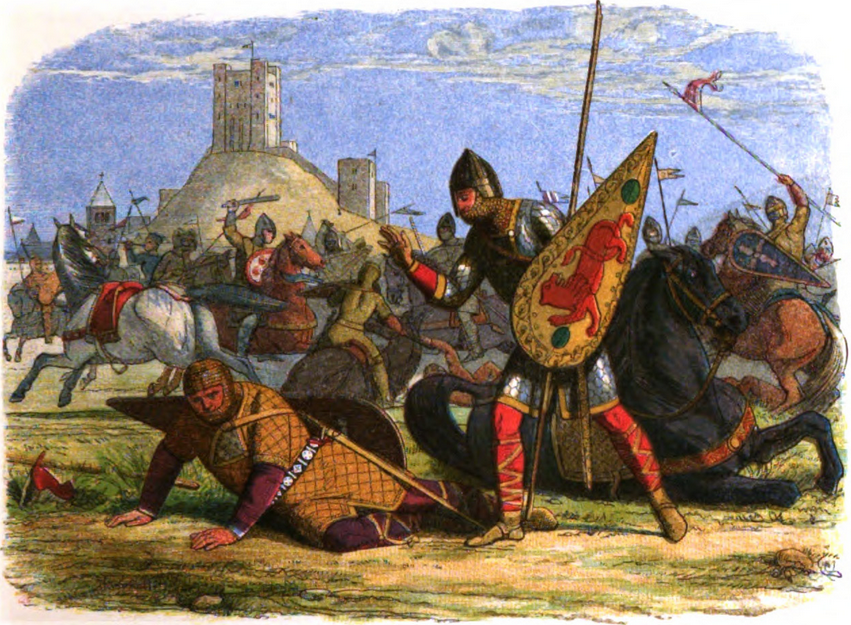
And, in fact, this dreadful result came very near being realized. Robert, in the castle at L’Aigle, had barely been prevented from destroying his brother, and now, on the plain of Archembraye, where this battle was fought, his father fell, and was very near being killed, by his hand. In the midst of the fight, while the horsemen were impetuously charging each other in various parts of the field, all so disguised by their armor that no one could know the individual with whom he was contending, Robert encountered a large and powerful knight, and drove his lance through his armor into his arm. Through the shock of the encounter and the faintness produced by the agony of the wound, the horseman fell to the ground, and Robert perceived, by the voice with which his fallen enemy cried out in his pain and terror, that it was his father that he had thus pierced with his steel. At the same moment, the wounded father, in looking at his victorious antagonist, recognized his son. He cursed his unnatural enemy with a bitter and terrible malediction. Robert was shocked and terrified at what he had done. He leaped from his horse, knelt down by the side of his father, and called for aid. The king, distracted by the anguish of his wound, and by the burning indignation and resentment which raged in his bosom against the unnatural hostility which inflicted it, turned away from his son, and refused to receive any succor from him.
Besides the misfortune of being unhorsed and wounded, the battle itself went that day against the king. Robert’s army remained masters of the field. William Rufus was wounded too, as well as his father. Matilda was overwhelmed with distress and mental anguish at the result. She could not endure the idea of allowing so unnatural and dreadful a struggle to go on. She begged her husband, with the most earnest importunities and with many tears, to find some way of accommodating the dispute. Her nights were sleepless, her days were spent in weeping, and her health and strength were soon found to be wasting very rapidly away. She was emaciated, wan, and pale, and it was plain that such distress, if long continued, would soon bring her to the grave.
Matilda’s intercessions at length prevailed. The king sent for his son, and, after various negotiations, some sort of compromise was effected. The armies were disbanded, peace was restored, and Robert and his father once more seemed to be friends. Soon after this, William, having a campaign to make in the north of England, took Robert with him as one of the generals in his army.

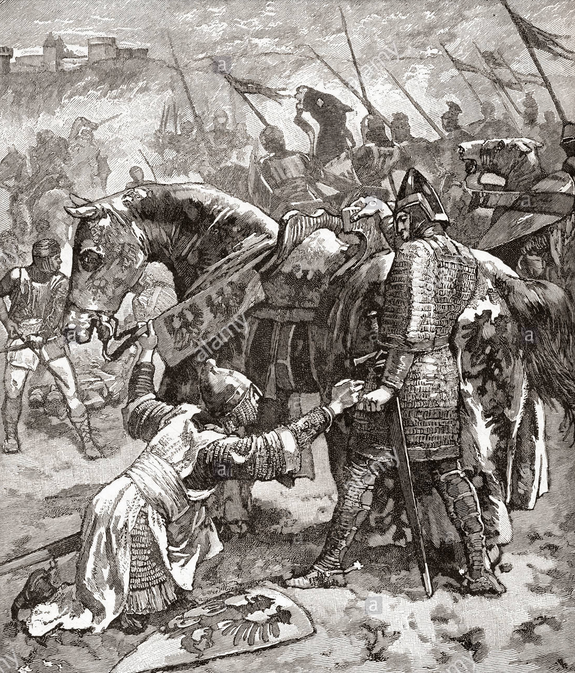








[…] Source link […]